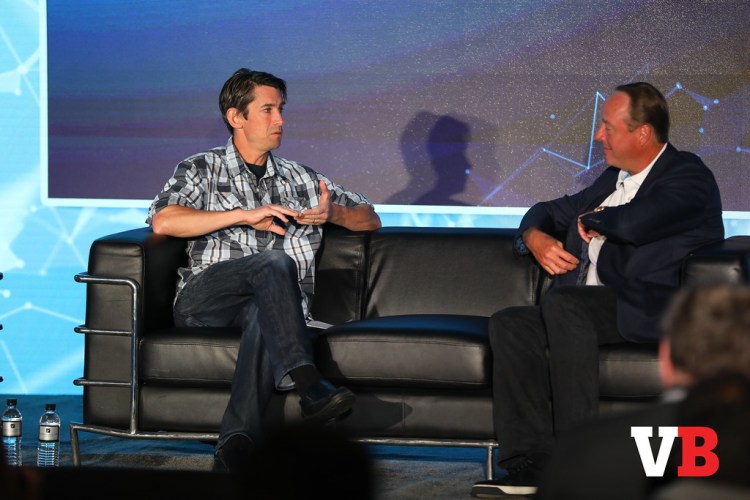The gaming industry has successfully fought off critics and their moral panics for decades, and now it’s time to look ahead to the next battle.
Two of the people who helped games find First Amendment protection revisited that battle today while also discussing how those lessons could stave off similar legal challenges to the emerging augmented and virtual reality industries. Ted Price, chief executive of Spider-Man and Ratchet & Clank studio Insomniac Games, and Mike Gallagher, chief executive of game-business lobbying group the Entertainment Software Association, took the GamesBeat Summit stage at Berkeley, California today to discuss what it means to take on a leadership role on an industry level.
As an example, Price recounted working with the Entertainment Software Association to shape the organization’s friend-of-the-court brief in the 2011 U.S. Supreme Court case Brown v. Entertainment Merchants Association. That heart of that legal fight was over a Californian law that sought to ban the sales of certain games to minors.
“We were shocked about what was happening with our constitutional rights,” said Price.
June 5th: The AI Audit in NYC
Join us next week in NYC to engage with top executive leaders, delving into strategies for auditing AI models to ensure fairness, optimal performance, and ethical compliance across diverse organizations. Secure your attendance for this exclusive invite-only event.
That led the Insomniac boss to agree to help the ESA prepare a legal defense of the industry. Price explained that he actually relished that opportunity.
“For me, what was really gratifying about that process is that it forced me to look at what we do,” he said. “I reevaluated how important our craft is to the world. We are in one of the most vibrant, living, evolving forms of media ever invented. And what was happening is that people who didn’t play games — in particular, legislators who didn’t play games — were looking at our stuff and saying, ‘this is harmful. I don’t know anything about it, but it’s harmful.’ And we had to take a stand against that and say, ‘you’re wrong.'”
In the end, the Supreme Court voted 7-2 to overturn California’s law, which enshrined a First Amendment protection for video games. So now the ESA is preparing for new fights. And Gallagher expects the next legal battleground will happen when it comes to VR and AR.
“When we see these new technologies begin to be adopted in greater numbers, we worry that the critics will come forward and say that this is harming society,” said Gallagher. “Just like comic books, cable TV, or video games went through that, we could see those types of challenges [come to VR, AR, and mixed reality]. And we’re ready for those.”
The moral panic surrounding VR has already begun to pick up some steam. If politicians aren’t calling for a ban or censorship quite yet, some people in the media have started to ask for those kinds of regulations. In November, Aeon writer Angela Buckingham wrote, “murder is illegal — it should be illegal in virtual reality, too.”
So now, even if traditional games are protected, the ESA will likely have plenty of reasons to keep a few lawyers on staff for the foreseeable future.


